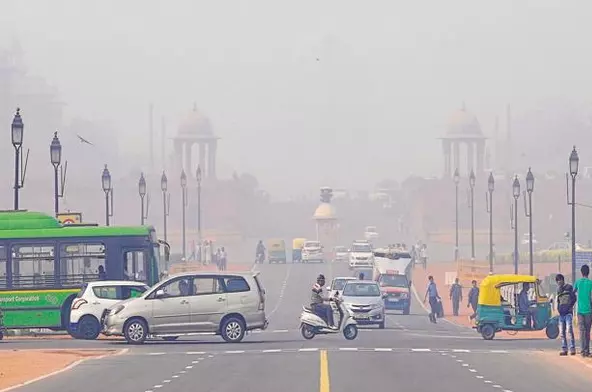
New Delhi: With the increasing pollution and the smog of the post-festive season setting in the national capital, Doctor Nikhil Modi advised people on Friday to not go out during high-pollution hours as many people might experience extra ailments including chest infections, breathing difficulties, cough etc.
Modi, a senior consultant at Apollo Hospital told ANI, “I am expecting more patients with problems related to pollution. Watery eyes, runny nose, cough, difficulty in breathing and chest infections are experienced due to air pollution. We have advised patients not to venture out during high-pollution hours and to minimise exposure to pollution.”
“It has been 10-14 days since the air quality in Delhi has been poor. Patients with complaints of cough, difficulty in breathing and more chest infections have been coming in,” he added.
He further advised that a diet high in antioxidants can also help with mitigating the health problems with pollution.
“Those already on respiratory medicines need to continue them. A diet high in antioxidants can help fight this. Children and elderly are most vulnerable,” Doctor Modi said.
Meanwhile, a thick layer of smog covered parts of Delhi today and many other parts of the country, the day of Diwali, pushing the city’s air quality into the ‘very poor’ category, according to the Central Pollution Control Board (CPCB). Most areas in the capital recorded an Air Quality Index (AQI) over 350, raising health concerns for residents.
At around 7:00 am, Anand Vihar recorded an AQI of 395, Aya Nagar stood at 352, Jahangirpuri at 390, and Dwarka reached 376. All these areas reported ‘very poor’ air quality levels, posing significant health risks.
Residents across the country have voiced their frustrations over worsening pollution levels, particularly as the aftermath of fireworks and the burning of crop residue in some states.
Manish, a Delhi resident, expressed his concerns about pollution’s impact on vulnerable individuals. Speaking to ANI, he said, “Pollution has always been a problem, and it increases during Diwali because of the fireworks. The biggest issue is that it affects our small children the most. The elderly at home also face significant difficulties, experiencing breathing issues, eye irritation, and hearing problems.”




